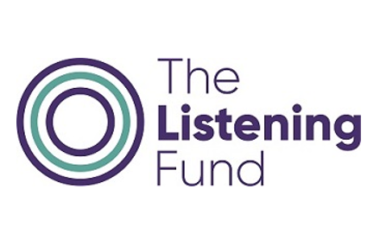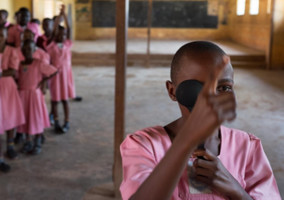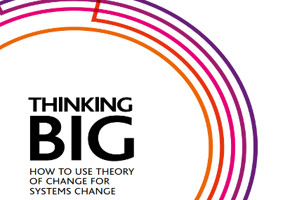Most of us working in the third sector want to live in a society where our beneficiaries are not just viewed as a problem to be solved, but are able to influence and to lead change themselves.
Realising these ambitions is easier said than done.
Austerity has had a huge impact on the sector, with charities trying to help more people with increasingly complex issues whilst using fewer resources and we’re having to work harder than ever to generate income which is then often tied to very specific objectives and outcomes.
But these challenges should not deter us from asking ourselves some hard questions: are existing approaches effective, and are we truly responsive to those in greatest need? Or are too many of us helping those who make the most noise, who provide the ‘best’ case studies, and who are most willing and able to jump through hoops with us, making sure we get through to the next financial year?
Power imbalance
Funders are part of the problem. There is a significant and unhealthy power imbalance between those who award funding and those who need it.
With less government funding available, philanthropists, trusts and foundations, corporates and individuals are being approached to make good the shortfall. As a result, charities are having to work ever harder for diminishing returns, making more applications, monitoring their work according to a myriad of different metrics, and filing countless detailed reports. This absorbs a disproportionate amount of organisations’ financial resources and focus.
In this competitive funding environment, the voices of those who use services are often lost. User-voice becomes another tick box exercise as 'beneficiaries' are wheeled out to meet the great and the good, to demonstrate the wonderful impact of services.
How many fundraisers and senior management teams have asked the individuals, families and communities who use their services about what they should bid for, what needs funding and which services should survive if an organisation’s budget is cut? And how many funders have asked applicants: who contributed to this application, and how do you know this work is what your beneficiaries want and need?
The Listening Fund
Last week the Blagrave Trust organised the launch of a new fund - The Listening Fund. In collaboration with the Big Lottery Fund, Comic Relief, and The Esmée Fairbairn Foundation, over the next two years we are supporting 22 partners across England who work with young people facing disadvantage. The fund's purpose is to specifically invest in partners’ organisational capacity so they can better listen and respond to those young people they exist to serve.
The Listening Fund, whose premise is that we will only start to create meaningful change if we invest in listening more closely and empowering those we seek to help, is committed to working differently.
Through the Listening Fund we hope that front line organisations will be able to listen to those who use their services with an open mind, ready to change their model if it isn’t fit for purpose. Moreover, they will need to think carefully about who they listen to and how they listen: how can they ensure that the opinions of the most disengaged are heard and treated equally; how can they then ensure that these voices are not just heard but also acted upon, arranging services and organisational structures according to client need; and how can they support these individuals and communities, amplifying their voices and giving them the skills and confidence to effect change in society at large?
Reflecting on our role
Funders too will be reflecting on our own role alongside the 22 partners we support, learning together, and open to course correction, new ideas and new ways of working. The Blagrave Trust has already substantially changed how we work, providing core funding, and light touch applications that emphasise relationship and communication over transactional process.
At the launch of the fund we heard from many inspiring individuals and organisations who are already doing this work. The 22 Listening Fund partners were chosen because of their existing commitment to this issue and because of the diversity of young people they work with across the country. The launch day was inspiring and exciting – a genuine sense that we are starting something new that the sector sorely needs. Our challenge ahead: to be brave and to be radical to translate this from mere words to meaningful change.
Edd Fry is the Listening Fund project manager at the Blagrave Trust
|
Related articles












